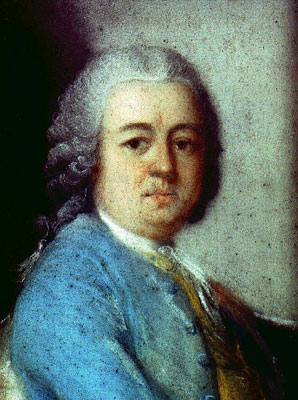

German composer. Son of Jacob Bach, born at Thal. Studied Theology at the Gotha Gymnasium; his first position was in the "school and church" of Salzungengen. Later, at the age of 22, he was called to the court at Meiningen, and in 1703 was appointed court Cantor and master of the ducal pages. In 1711, Prince ErnstLudwig, the successor of Prince Bernhard I (who had first appoimted Ludwig), relieved him of all his previous duties and entrusted him instead with the direction of the enlarged court orchestra. Ludwig now produced a great number of compositions. His orchestra paid regular visits to neighbouring courts, thus starting a tradition which was in the 19th century to come to glorious life again in the famous Meiningen tours under von Bülow and Brahms. Even when the musicians were home, performances took place once, sometimes twice a day. Johann Ludwig used to accompany the visiting artists who often performed on these occasions, or he performed himself on the violin. The prince died in 1724 and Ludwig mourned him deply, compising a funeral cantata based on verses the prince had written long before. Ludwig himself died in 1731.
If the number of scores that Johann Sebastian copied fromthe works of any composer can be considered as an indication of the esteem in which he held him, Ludwig Bach ranked particularly high in his kinsman's favor. Ludwig's cantatas in fact well deserved his Sebatian's interest: it is vigorous music, full of strength and inspiration, rich in variety, and imbued with sensuous pleasure in tonal beauty.; the treatment of the voices reveals a composer who has studied well Italian models.